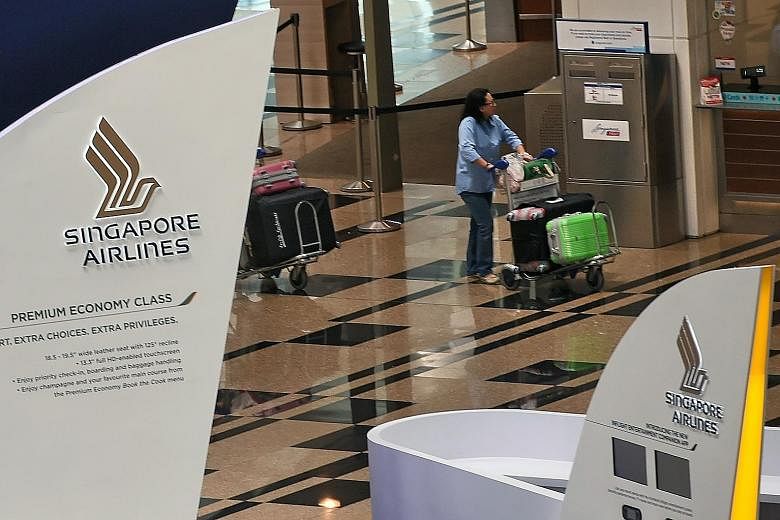Singapore Airlines (SIA) missed out on an opportunity to take control of Virgin Australia after it was blindsided by Virgin's tie-up with Chinese conglomerate HNA Group, according to research firm Centre for Aviation (Capa).
A recent announcement by Virgin, Australia's second-biggest airline, said it was selling a 13 per cent stake to HNA, which the group is expected to top up to 19.99 per cent.
Also, Air New Zealand, another stakeholder in Virgin Australia, said it was selling a 19.98 per cent stake to China's Nanshan Group.
The deals will ensure Virgin remains a viable competitor to Qantas Airways, which retains 63 per cent of the domestic market, Financial Times reported.
The developments blindsided SIA, which was understood to be moving towards securing a 51 per cent holding in the Australian carrier, Capa said in a statement.
"That no longer seems a realistic option and perhaps puts an end to SIA's longstanding aspirations to own a dominant minority of the Australian market," Capa said.
SIA had reported a full-year profit of S$804 million for the financial year ended March 31, up 118.5 per cent from the prior year amid a lower fuel price and a turnaround of subsidiaries Scoot and Tigerair.
It has long coveted a majority stake in a carrier in the Australian market which, according to Capa data, produces about a fifth of its revenues. Controlling Virgin Australia would have increased SIA revenue further, Capa said.
In April, SIA raised its stake in Virgin Australia to 23.11 per cent from 22.91 per cent, after Air New Zealand announced it was selling some of its 25.89 per cent stake in the Brisbane-based airline.
Etihad Airways is the second largest shareholder of Virgin Australia with about 24 per cent stake, while Mr Richard Branson's Virgin Group owns about 10 per cent, according to Bloomberg.
Virgin Australia has been aiming to cut debt and cover restructuring costs after a capacity war with the market leader Qantas pushed its net debt to about US$1.5 billion (S$2 billion). The new deals make it a viable competitor to Qantas.
After agreeing to sell 13 per cent stake to HNA, Virgin also applied to operate daily flights between Australian cities and Beijing and Hong Kong from next year.
"This is good news for a cash- strapped Virgin, which will gain the support of Chinese shareholders with a long-term view," said Mr Peter Harbison, executive chairman at Capa. But SIA will be disappointed by the tie-up, as it provides an alternative for the Australian airline to expand into China.
"This was one purchase Singapore Airlines really needed. Instead, it has mostly just participated in Virgin's losses and is now relegated to an also-ran," Capa said.

